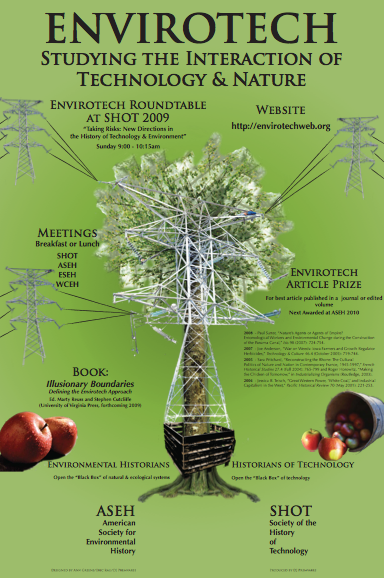Journal of Transport History, Special Issue
In 1844 William Wordsworth wrote passionately about a railway that was desecrating the tranquility of the English Lake District, if not setting fire to woodland and dividing ancient fields and ecologies. Across the Atlantic in the same century, Henry Thoreau expressed gratitude that people could not yet fly “and lay waste the sky as well as the earth”.
‘Conquest’, defilement and intrusion have been labels since pinned on many transport investments and mass traveling. Deforestation, air pollution, oil spills, noise, landscape leveling, water table lowering, and habitat change have all been associated with environmentally blind infrastructure expansion and mobility in the past. Conversely, there have been transport projects linked with landscape beautification, and mobility may be said to have increased appreciation of the sanctity and fragility of wilderness. Some environmental activism has been directed at transport projects. Historians of transport and mobility as well as environmental historians have dealt with these issues, but more research is needed.
We invite scholarly contributions that examine the historical relationship between transport and mobility and the natural environment for a proposed Special Issue of the Journal of Transport History scheduled for December 2014 (vol 35 [2]). Contributions may be substantial library and archive-based research essays of 8,000 words (including endnotes and Abstract), or shorter pieces (1,500 words) for the Journal’s ‘Surveys & Speculations’ and its ‘Exhibitions & Museum Reviews’ sections.
In existence for over 50 years, The Journal of Transport History publishes scholarly research and commentary on the history of transport, travel, tourism and mobility, including their relationship with planning and policy.
The Special Issue will be guest edited Thomas Zeller, author of Driving Germany: the Landscape of the German Autobahn, 1930-1970 (2007). Together with JTH editor Gordon Pirie, he will select papers based on their originality and scholarly rigour, but will also strive for broad coverage of periods, themes, continents and transport modes. Papers will be subject to a double-blind review process. Conceptually progressive research is especially encouraged. A second call will be made in June 2013. Prospective authors should contact Thomas Zeller (tzeller@umd.edu) and Gordon Pirie (jth.editorial@gmail.com).
Final submissions for the JTH Special Environmental Issue should be lodged by 5 August 2013. More detail about the JTH, and back issues, are online at http://manchester.metapress.com/content/122747.
